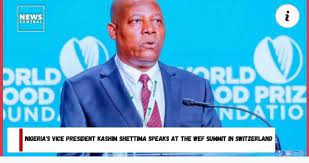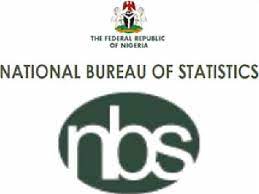Nigeria’s Vice President, Kashim Shettima, projected on Thursday that the African Continental Free Trade Area (AfCTA) agreement had the potential to raise Africa’s gross domestic product (GDP) by $450 billion in 2035.
Shettima, who made this forecast at a breakfast event with African Heads of State to launch the Action Plan for AfCTA on the sidelines of the ongoing World Economic Forum (WEF) in Davos, Switzerland, tasked African leaders to ensure that the project continued to enjoy collective commitment ro achieve its goals.
Specifically, the Vice President urged the leaders of AfCTA member-countries to expeditiously “iron out whatever agreement or impediment” to ensure free and smooth trade.
He said: “African trade is to be boosted by 52.3% by 2025. We should increase these targets and look at the trillions of dollars. African countries need to move quickly to iron out whatever agreements and impediments are remaining to ensure free and smooth trade. Issues around rules of origin negotiations must be completed.”
Similarly, Shettima harped on the need to prioritize exchange of information with the organized private sector players even as he lamented the slow pace at which “negotiations have turned out to be too slow, with clashes between national and continental priorities leading to too few consummated deals between countries since January 2021 to date.”
He maintained that looking ahead there was a need for speed and cohesion among African countries, pointing out that the idea of AfCFTA must not fail as there is no room for mediocrity in the emerging global economic system
The Vice President further elaborated: “Nigeria occupies an enviable position as the continent’s largest economy and with the largest population. Nigeria is currently repositioning its economy away from crude oil dominance, with deeper footprints in technology, arts, culture, creativity, and industrialization.
“Recent developments in our energy sector portend that Nigeria is leading the region in energy security and energy transition. International and domestic energy companies are already engaging the global community and subscribing to the innovations of the future.
“We have our expert, Dr. Ngozi Okonjo-Iweala, heading up the World Trade Organisation, meaning that Nigeria must show to be a shining example in the best global trade practices.
“Recently, Nigeria removed the infamous 43 trade items from the foreign exchange ban, opening up the space entirely, in what is actually a very bold move, signifying full trade liberalization”, Shettima added.



